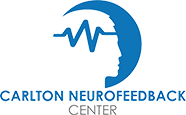What research says about persistent distress and its effects on the brain
Persistent distress and severe anxiety can be unhealthy for the brain and the body. Brain research has shown that it can be toxic to brain cells, is linked with anxiety disorders, and that it can alter brain physiology. Brain scans show that the amygdala area of the brain, which processes fear, grows in size, while the hippocampus area of the brain shrinks, harming long-term memory.
“Pathological anxiety and chronic stress are associated with structural degeneration and impaired functioning of the hippocampus and the prefrontal cortex (PFC), which may account for the increased risk of developing neuropsychiatric disorders, including depression and dementia,” said Dr. Linda Mah, clinician scientist with Baycrest’s Rotman Research Institute.
Source: https://www.sciencedaily.com/releases/2016/01/160121121818.htm
How neurofeedback can help
The good news is that brains are resilient and have the ability to make new connections all the time. They can learn new ways of responding and break out of harmful patterns. Neurofeedback is a type of biofeedback training that can help anxious, overstimulated brains learn more productive patterns of self-regulation. This process begins by completing an evaluation to learn about your specific anxiety symptoms and how neurofeedback works. Then, a short appointment is set up to complete a brain map, which creates a roadmap of the electrical activity in your brain. From there, a custom protocol is designed to retrain your brain over the course of several weeks. Typical appointments last 30 minutes and involve sitting in a comfortable chair watching a video through special glasses and headphones, hooked up to software that monitors brainwaves. When brainwaves jump out of bounds, the audio and visual inputs dim or change. This draws your brain’s attention, teaching it to respond in a more balanced way. This simple but impactful training helps break harmful feedback loops and encourages your brain to build new pathways. Much like learning to drive a stick shift, the effects are long-lasting and pain-free.
Relief is available
If you’re located in Northern Virginia near Manassas, Dr. Ed Carlton, founder of the Carlton NeuroFeedback Center, offers free evaluations to anyone interested in learning more about neurofeedback training for anxiety. A certified Neurobiofeedback provider and chiropractor, he has had remarkable success alleviating anxiety and insomnia symptoms with neurofeedback by helping patients reset their brain’s anxiety response to normal levels. If you’re seeking long-lasting, drug-free relief, call Dr. Carlton today.


